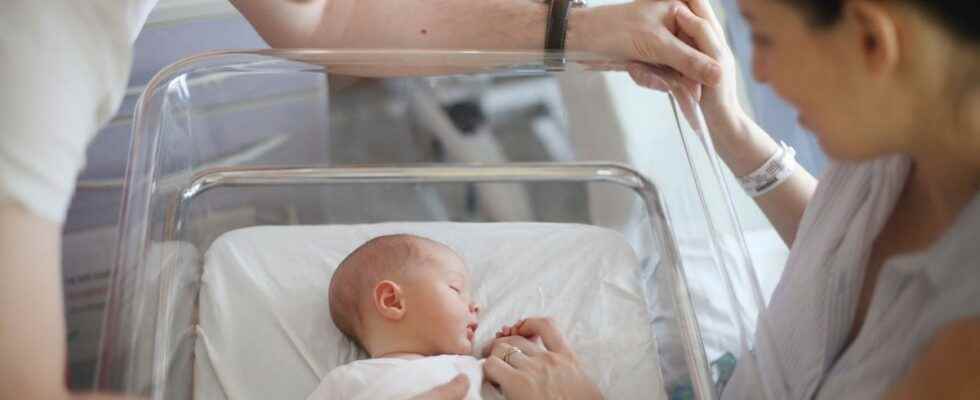Published on
Updated
Reading 3 mins.
Public Health France is today publishing a comprehensive report on the issue of perinatal health in France, both in mainland France and in the Overseas Territories. While the overall situation is good, some results show significant disparities between regions of France and plead for increased prevention and promotion of the health of pregnant women, the fetus and the newborn.
This unprecedented report covers the period between 2010 and 2019, before the outbreak of the pandemic. It aims to provide an overall description of the state of perinatal health in France, in parallel with the strategy of the first 1000 days, which aims to raise parents’ awareness of the importance of this period in the life of their children.
Increase in certain pathologies
The report notes first of all the increase in certain pathologies affecting pregnancies and postpartum women, such as “hypertensive disorders (4.5% in 2010 to 5.0% in 2019) and gestational diabetes (6.7% in 2010 to 13.6% in 2019)”. In the same way, “the average maternal age at childbirth continues to increase (30.2 years in 2019) in all regions” indicates Public Health France.
Finally, there isa significant decrease in the frequency of episiotomies (from 29.5% in 2010 to 10.0% in 2019 among primiparous women who give birth by non-instrumental vaginal delivery) and stability in the frequency of recourse to cesarean section (around 20% )”.
Follow your pregnancy week by week
Rise in mortality and fall in the birth rate
The SPF report also looks at the situation overseas. Unsurprisingly, the health results in these French departments are more unfavorable there than in mainland France, with “a maternal mortality rate 4 times higher than in mainland France, a stillbirth rate 1.5 times higher and a neonatal mortality rate (death between 0 and 27 days of life) 2 times higher”. Guyana and Mayotte are the departments where the situation is the most unfavorable.
To improve this situation, Public Health France pleads for “strengthening prevention and promotion of perinatal health for support for mothers and families throughout pregnancy, better access to rights and care, in particular in certain territories including the DROMs”.
A heterogeneous situation in Overseas France
The SPF report also looks at the situation overseas. Unsurprisingly, the health results in these French departments are more unfavorable there than in mainland France, with ” a maternal mortality rate 4 times higher than in mainland France, a stillbirth rate 1.5 times higher and a neonatal mortality rate (death between 0 and 27 days of life) 2 times higher “.
Guyana and Mayotte are the departments where the situation is the most unfavorable. To improve this situation, Public Health France pleads for “ strengthening prevention and promotion of perinatal health to support mothers and families throughout pregnancy, better access to rights and care, particularly in certain territories including the DROMs “.
Need for a restructuring of the healthcare system
For midwife Géraldine Dahan-Tarrasona, member of the Doctissimo committee of experts, the report is coherent. “We note a later childbirth age of mothers, we know that this can potentially lead to more complications and more twin pregnancies too, and the latter also lead to more potential complications” indicates the specialist. ” Concerning the Overseas Territories, there are unfortunately difficulties within the hospitals, which benefit from less material means than in mainland France. But the situation of hospitals in metropolitan France is also tense. In reality, we really need a global restructuring of the medical system“says the midwife.
According to Professor Geneviève Chêne, Director General of Public Health France: “For the first time, these results provide a global vision of perinatal health in France. The indicators published today describe a worrying and heterogeneous situation in perinatal health over a period prior to the Covid-19 pandemic. The update every two years will make it possible to follow the evolution of these indicators and to guide public policies. This knowledge base is the basis of all preventive actions favorable to the health of the unborn child and future parents. It allows us to refine our strategy and our action such as, for example, the site of the first 1000 days, the promotion of “zero alcohol during pregnancy” or even the deployment of interventions to promote the health and attachment of new born and their parents (PANJO)”.
